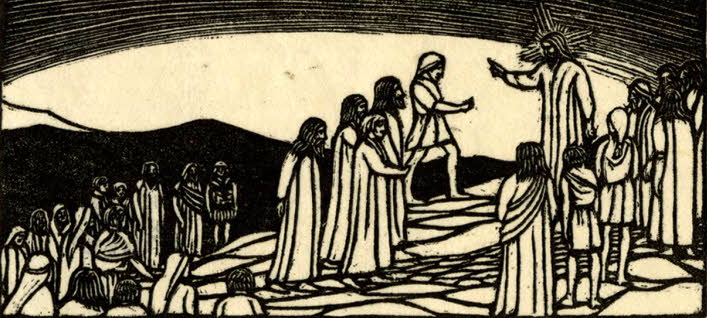- Joined
- Dec 26, 2020
- Messages
- 497
- Reaction score
- 98
- Gender
- Male
- Political Leaning
- Independent
Some light on early Christianity, and something for the Trinitarians on their roots.
Summary
If Christianity emerged from the matrix of Judaism, how it conducted a dialogue—if it did at all—with the Jewish confession of its unique faith and praxis is a most interesting question. This essay claims not only did this take place frequently, as evident in the deployment of the Shema in many NT passages, it was also a flashpoint of debate between the Church and the Synagogue in the first century. It became an impetus of early Christian theological development, principally in the understanding of the constitution of the eschatological community and the identity of Jesus Christ.
... and

 tabletalkmagazine.com
tabletalkmagazine.com
The call of Deuteronomy 6:4–5, often referred to as the Shema (the first Hebrew word in v. 4, which means “Hear!”), is one of the most important texts of the old covenant mediated by Moses between God and the nation of Israel. It reads: “Hear, O Israel: The Lord is our God; the Lord is one. You shall love the Lord your God with all your heart and with all your soul and with all your might.”
The text was of great significance during the New Testament period, a significance that seems understood between Jesus and His interlocutors (Matt. 22:36–40; Mark 12:28–34; Luke 10:25–28). Students of the Bible who read the New Testament with an ear for the Shema will find references to it elsewhere among the new covenant writings. For instance, the Apostle Paul develops the Shema in 1 Corinthians 8:6 when he teaches that not only is God one, but this arrangement should be understood in a Trinitarian sense: “Yet for us there is one God, the Father, from whom are all things and for whom we exist, and one Lord, Jesus Christ, through whom are all things and through whom we exist.” Paul is obviously not affirming two deities here. Rather, he is using the two divine names of the Old Testament, “God” and “Lord,” to help us understand the Father and the Son as two persons but nevertheless one God.
Elsewhere, Paul includes the Holy Spirit in his formulation of the Shema. In Ephesians 4:4–6, the Spirit figures prominently in the oneness of God: “There is one body and one Spirit—just as you were called to the one hope that belongs to your call—one Lord, one faith, one baptism, one God and Father of all, who is over all and through all and in all.” Paul is clear that the Shema was not made obsolete by the Christian gospel, but rather that Christians are called to observe it in light of the revelation of Jesus Christ and the filling of the Spirit, both of whom are one with the Father in heaven.
Do either of these authors have a reasonable case? As added info, here is a list of Jesus cites of Deuteronomy, which he cited quite often, not surprising for a reformer advocating for a return to the written Torah as the only real Torah.

 biblebits.me
biblebits.me
Jesus Quotes Deuteronomy •
Matt 4:4 & Deut 8:3; Matt 4:7 & Deut 6:16; Matt 4:10 & Deut 6:13 plus Deut 10:20; Matt 5:21 & Deut 5:17; Matt 5:27 & Deut 5:18; Matt 5:31 & Deut 24:1; Matt 5:38 & Deut 19:21; Matt 15:4 & Deut 5:16; Matt 18:16 & Deut 19:15; Matt 19:7 & Deut 24:1; Matt 22:24 & Deut 25:5; Matt 22:37 & Deut 6:5; Mark 7:10 & Deut 5:16; Mark 10:4 & Deut 24:1; Mark 12:19 & Deut 25:5; Mark 12:29-30 & Deut 6:4-5; Luke 4:4 & Deut 8:3; Luke 4:8 & Deut 6:13 plus Deut 10:20; Luke 4:12 & Deut 6:16; Luke 10:27 & Deut 6:5; Luke 18:20 & Deut 5:17-21; Luke 20:28 & Deut 25:5;
... and likely more.
Summary
If Christianity emerged from the matrix of Judaism, how it conducted a dialogue—if it did at all—with the Jewish confession of its unique faith and praxis is a most interesting question. This essay claims not only did this take place frequently, as evident in the deployment of the Shema in many NT passages, it was also a flashpoint of debate between the Church and the Synagogue in the first century. It became an impetus of early Christian theological development, principally in the understanding of the constitution of the eschatological community and the identity of Jesus Christ.
... and

Jesus, the Shema, and the Glorious Trinity | Tabletalk
The call of Deuteronomy 6:4–5, often referred to as the Shema, is one of the most important texts of the old covenant.
The call of Deuteronomy 6:4–5, often referred to as the Shema (the first Hebrew word in v. 4, which means “Hear!”), is one of the most important texts of the old covenant mediated by Moses between God and the nation of Israel. It reads: “Hear, O Israel: The Lord is our God; the Lord is one. You shall love the Lord your God with all your heart and with all your soul and with all your might.”
The text was of great significance during the New Testament period, a significance that seems understood between Jesus and His interlocutors (Matt. 22:36–40; Mark 12:28–34; Luke 10:25–28). Students of the Bible who read the New Testament with an ear for the Shema will find references to it elsewhere among the new covenant writings. For instance, the Apostle Paul develops the Shema in 1 Corinthians 8:6 when he teaches that not only is God one, but this arrangement should be understood in a Trinitarian sense: “Yet for us there is one God, the Father, from whom are all things and for whom we exist, and one Lord, Jesus Christ, through whom are all things and through whom we exist.” Paul is obviously not affirming two deities here. Rather, he is using the two divine names of the Old Testament, “God” and “Lord,” to help us understand the Father and the Son as two persons but nevertheless one God.
Elsewhere, Paul includes the Holy Spirit in his formulation of the Shema. In Ephesians 4:4–6, the Spirit figures prominently in the oneness of God: “There is one body and one Spirit—just as you were called to the one hope that belongs to your call—one Lord, one faith, one baptism, one God and Father of all, who is over all and through all and in all.” Paul is clear that the Shema was not made obsolete by the Christian gospel, but rather that Christians are called to observe it in light of the revelation of Jesus Christ and the filling of the Spirit, both of whom are one with the Father in heaven.
Do either of these authors have a reasonable case? As added info, here is a list of Jesus cites of Deuteronomy, which he cited quite often, not surprising for a reformer advocating for a return to the written Torah as the only real Torah.

Jesus Quotes Deuteronomy
Jesus Quotes Deuteronomy • Matt 4:4 & Deut 8:3; Matt 4:7 & Deut 6:16; Matt 4:10 & Deut 6:13 plus Deut 10:20; Matt 5:21 & Deut 5:17; Matt 5:27 & Deut 5:18; Matt 5:31 & Deut 2…
 biblebits.me
biblebits.me
Jesus Quotes Deuteronomy •
Matt 4:4 & Deut 8:3; Matt 4:7 & Deut 6:16; Matt 4:10 & Deut 6:13 plus Deut 10:20; Matt 5:21 & Deut 5:17; Matt 5:27 & Deut 5:18; Matt 5:31 & Deut 24:1; Matt 5:38 & Deut 19:21; Matt 15:4 & Deut 5:16; Matt 18:16 & Deut 19:15; Matt 19:7 & Deut 24:1; Matt 22:24 & Deut 25:5; Matt 22:37 & Deut 6:5; Mark 7:10 & Deut 5:16; Mark 10:4 & Deut 24:1; Mark 12:19 & Deut 25:5; Mark 12:29-30 & Deut 6:4-5; Luke 4:4 & Deut 8:3; Luke 4:8 & Deut 6:13 plus Deut 10:20; Luke 4:12 & Deut 6:16; Luke 10:27 & Deut 6:5; Luke 18:20 & Deut 5:17-21; Luke 20:28 & Deut 25:5;
... and likely more.
Last edited:
